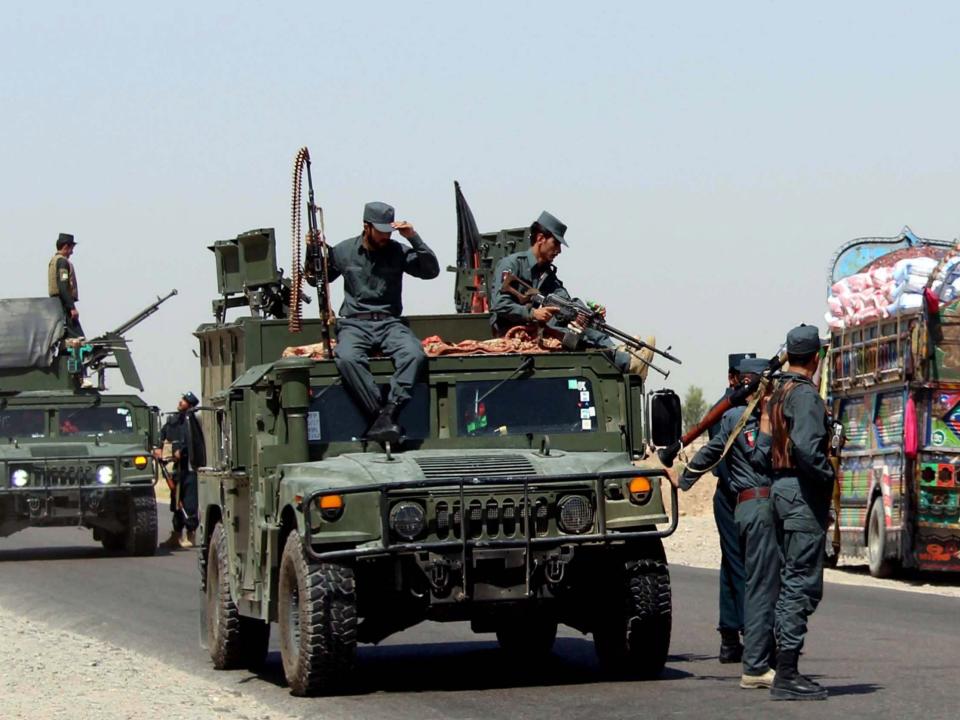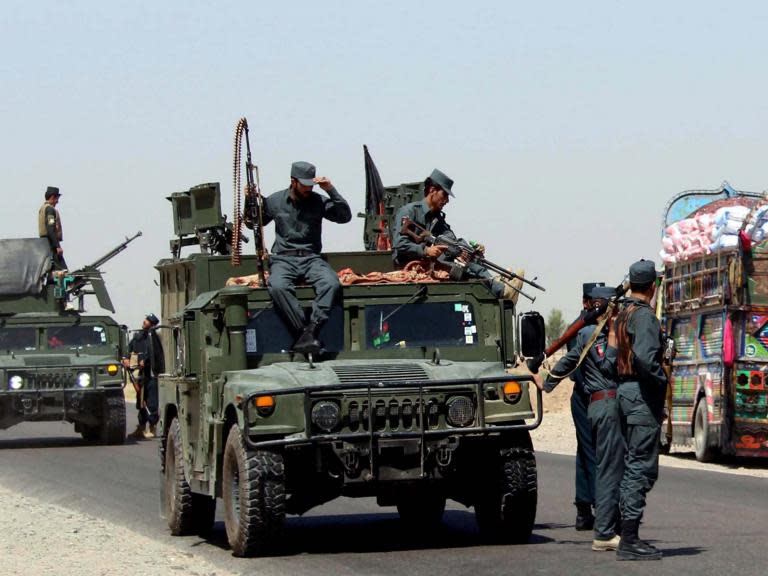British special forces expected to step into counter-terrorism vacuum after US pulls out of Afghanistan
British Special Forces will be asked to play a key role in counter-terrorist operations in Afghanistan under military plans being drawn up by the Pentagon following Donald Trump’s decision to pull US troops out of the country, according to senior defence sources.
While US officials are involved in contentious talks about future power sharing with the Taliban, planners in Washington have been putting together a strategic road-map which will meet the president’s demand for withdrawing the vast bulk of the 14,000 US military personnel currently deployed in Afghanistan.
Other international forces, numbering around 9,000, will pull out along with the Americans over a time-frame of around three years. There would, however, be US air cover provided for Afghan forces and a smaller US-led force focusing on counter-terrorism against Isis and al-Qaeda fighters. The British Army’s SAS and the Royal Navy’s SBS are expected to be part of the mission, say US and Western military officials.
There are currently just over 1,000 British troops in Afghanistan, and a SBS contingent, The Independent understands, is operating in central and eastern Afghanistan.
The UK SF numbers can be enlarged in the future, it is believed, with a current deployment in Syria due to be scaled down with the campaign against Isis drawing to a close. French Special Forces who have, like the British, seen Afghan combat in the past, have also been considered for deployment request in Pentagon plans. But they are engaged against Islamists in the Sahel region, as well as being in Syria, and are unlikely to have capacity to spare.
Trump’s announcement of the Afghan pull out, along with a similar move in Syria, are said to have been major contributing factors to the resignation of James Mattis as Defence Secretary. There have been warnings about the policy from the military, with General John Allen, a former commander of US and Nato forces, stressing that a large-scale drawdown would be serious mistake.
“Pulling out right now, just the announcement would create chaos in the strategy”, he held. There has been widespread criticism, too, from senior figures in the president’s own Republican party like Senator Lindsay Graham who maintains that a sudden withdrawal would create a security vacuum for terrorists and pave the way for “a second 9/11” --- the New York attacks which led to the intervention by American and British forces in 2001.
There have also been bitter complaints from the Kabul government, which has not been included in the talks between the Taliban and a US team, led by Special Envoy Zalmay Khalilzad.
The Afghan president, Ashraf Ghani, raised the spectre of what happened to one of his predecessors, Mohammed Najibullah, who was dragged away from a UN compound, tortured and murdered by the Taliban when they took the capital in 1996.
There is said to be recognition among the military planners that the volatile nature of Trump’s decision-making may mean the forces drawdown may not be as drastic as demanded. There would, however, still be a need to move towards a counter-terrorist mission, say military officials.
The 18-year military engagement in Afghanistan is the longest war in American history and successive US presidents have sought to end it. The US-led Isaf (International Security Assistance Force) which had 130,000 troops at one stage, formally ended its operations in 2014 under Barack Obama.
The UK had around 10,000 troops, mainly in Helmand in the south, until the end of the Isaf mission. Theresa May’s government doubled the numbers to its current strength last year, at the request of president Trump who was sending additional US forces at the time.
Various options have been put forward for the Afghan war including one by Erik Prince – the former owner of the private security company Blackwater – calling for security contractors to replace US troops. The former US Navy Seal officer maintains that far smaller numbers of personnel would be needed and the mission could be run at a fraction of the cost it is incurring now.
“There is a move towards a counter-terrorist mission, even if president Trump changes his mind about the numbers being pulled out. And it’s natural that a UK contribution will be requested when that happens - after all, US and UK SF have worked together successfully quite a lot in Afghanistan and Iraq ” said a senior American defence source.
“We also know that the ANA (Afghan National Army) and the ANP (Afghan National Police) must be supported by air in combat and also medivac (medical evacuation) if they are to have a fighting chance, but just training them is not enough. There is recognition that a new strategy is needed.”
The US Department of Defence said it is considering “all options on force dispositions” and no decision has yet been made about the matter.

 Yahoo News
Yahoo News 

